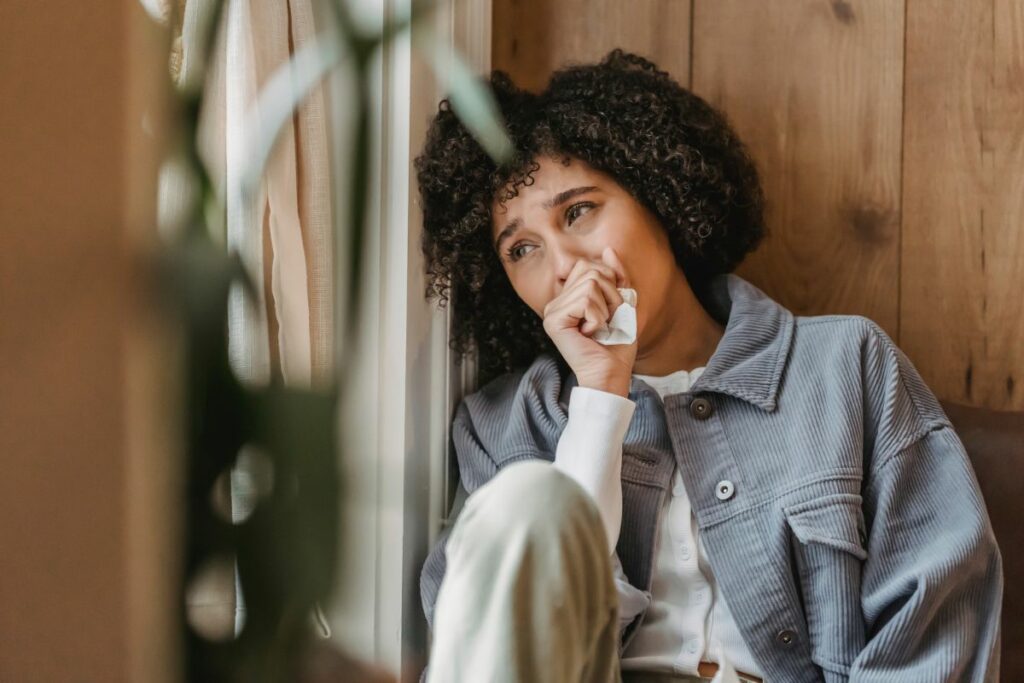Losing a childhood friend can be a very difficult experience. Childhood friends are often some of the first people we form close bonds with and they can play an important role in our lives. The loss of a childhood friend can have a significant impact on our lives and it can be difficult to cope with.
The grieving process after losing a childhood friend can be long and difficult. It is important to allow yourself to grieve and to heal after losing a childhood friend, and know when to seek grief counselling for coping with the loss of a childhood friend.
Why They Matter
There are a few reasons why childhood friends matter. Firstly, they often share a unique bond that is difficult to find with other people. This can make them especially supportive and helpful during difficult times. Secondly, they often know each other better than anyone else, which makes them uniquely qualified to give support during the grieving process.
Losing a childhood friend can be incredibly painful and impactful. It can lead to feelings of isolation and loneliness, as well as depression and anxiety. In order to cope with this loss, it is important to seek out support from family and friends, as well as from professional resources such as counselors or therapists. It is also important to remember that grief does eventually pass – though it may take some time.
The loss of a childhood friend can be incredibly painful and impactful. Grief often manifests in different ways, depending on the individual. Some people may feel isolated and lonely, while others may experience depression or anxiety. It is important to seek out support from family and friends as well as from professional resources such as counselors or therapists. These resources can help you cope with the pain and stress of this difficult time.
Grieving is not a linear process – it tends to unfold in waves that come and go over time. However, it is important to remember that grief does eventually pass – though it may take some time. Patience is key during this difficult journey.
The Impact of Losing a Childhood Friend
Losing a childhood friend can be a difficult experience. The grieving process is different for everyone and there is no one-size-fits-all approach to dealing with the loss. However, there are some common stages that most people go through during their grief journey. These include denial, anger, bargaining, depression, and acceptance, which we will run through later in this article.
It is important to remember that the grieving process will take time and it is normal to feel lost and confused at first. It is also important to give yourself time to heal. There are many resources available online and in person that can help you through this difficult time. If you find that you need professional help, don’t hesitate to reach out for assistance.
Grief is a natural response to the loss of something dear to us. It can be difficult to understand and deal with, but it is important to remember that it will pass. The best way to cope with grief is to take things one step at a time and allow yourself time to process what has happened. There are many resources available online and in person that can help you through this difficult time. If you find that you need professional help, don’t hesitate to reach out for assistance.
The Grieving Process After Losing a Childhood Friend
Losing a childhood friend can be devastating. There are specific stages of grief that everyone goes through after a loss, and it is important to know what these are in order to cope effectively. The following are the four primary stages of grief: Denial, Anger, Bargaining, Depression and Acceptance. In each stage, there are specific emotions that should be expressed in order to move on from the loss.
1. Denial
At first, after a loss like this one, many people will try to deny that their friend is gone at all. They may act as if he or she is still around despite any evidence to the contrary. It is important not to do this; denial only leads to more pain down the road. Instead, it is necessary to face reality and deal with the fact that your friend is no longer alive. This can be done by talking about your friend openly with loved ones, writing about him or her (or even creating a memorial), and remembering all the good times you shared together.
2. Anger
After losing someone close to them, many people will feel anger towards that person. This anger may range from being angry at God for taking their friend away too soon, all the way up to full-blown rage against that person himself or herself. It’s important not to suppress this anger; instead it needs to be acknowledged and dealt with head on so it doesn’t build up over time and cause further damage.
3. Bargaining
Many people go through bargaining during their grieving process–they’ll try anything possible to get their lost loved one back! They may offer themselves up as sacrifices or make ridiculous requests such as wanting their lost loved one back “in one piece.” Bargaining isn’t helpful; in fact it can actually lead to more pain later on when those attempts fail miserably. Remembering how your lost loved one treated you throughout his or her life will help temper any anger you may feel towards him or her at this momentary stage of grief.
4. Depression
Depression is another common emotion that people experience after losing a loved one. Some people may become depressed because they feel guilty for feeling sad; others may simply feel overwhelmed by the sheer number of feelings they’re experiencing. Regardless of why depression occurs, it is important to recognize it and seek treatment immediately if things are not going too well.
5. Acceptance
Finally comes acceptance–the final step in grieving where you come unto terms with the death and realize that your beloved companion has finally moved on into eternity. It is stage that will eventually come, even though it feels like it won’t happen early on in the grieving process. You will need plenty of patience and support to reach this point, but once you do, you’ll find yourself feeling much better than before.
How to Heal After Losing a Childhood Friend
It’s normal to feel a range of intense emotions after losing a childhood friend. These may include sadness, grief, anger, and confusion. It’s important not to be afraid to talk about your friend and memories you shared. This will help to process these feelings and allow you to start moving on.
If you’re struggling to cope, it’s important to seek professional help. A therapist or counselor can provide you with support and guidance as you go through the grieving process. Be patient with yourself as you go through this difficult time; it will take time, but eventually the pain will begin to lessen.
When to Seek Grief Counseling After Losing a Childhood Friend
If you have lost a childhood friend, there is a high probability that you will experience some form of grief. It is important to understand the grieving process in order to make the best decision for when it is appropriate to seek grief counselling.
It can be difficult to know when it is time to seek help after losing a loved one. However, there are several signs that might suggest that it’s time to seek professional help. You might feel like your world has been turned upside down, find it hard to concentrate or focus on anything, have trouble sleeping or eating, or your mood might change frequently and unpredictably. You might also find yourself withdrawing from friends and family members.
If you experience two or more of these symptoms for more than six months, then it might be advisable to seek professional help. A mental health professional can offer emotional support as well as guidance on how to cope with the grieving process. They can also provide resources such as books or websites on the topic of grief counseling. In many cases, talking about your feelings with someone else can be very helpful in overcoming them.
Tips for Coping With the Loss of a Childhood Friend
When a childhood friend dies, it can be quite difficult to cope. However, there are a few things that you can do to help ease the pain and make the process of grieving easier. First and foremost, it is important to acknowledge your feelings. This means that you should not try to hide or suppress your emotions. Instead, allow yourself to feel all of the emotions that come up during this time. Talking about your friend and keeping their memory alive is also important. Doing this will help others who are mourning to understand what you’re going through and share in your grief.
If you find that you are struggling emotionally, it is recommended that you seek out social support from friends and family. This can be a helpful way for you to get support as well as share in other people’s condolences. If professional help is needed, then by all means go for it! There are many resources available which can offer guidance during this difficult time.
While there is no single right way to cope with the loss of a childhood friend, following these tips should help you have a more manageable experience. Remember that it is okay to feel sad and lost at times; however, doing your best not to fall into the trap of self-pity will make the process of grieving easier.
Resources for Dealing With the Loss of a Childhood Friend
The grieving process is different for everyone and there is no one right way to deal with the loss of a childhood friend. However, there are many resources available to help cope with the loss of a loved one. Some of these resources include grief support groups, talking to a mental health professional, attending grief counselling, and books about loss. It is important to find what works best for you in order to make the most out of your mourning process.
Last Words
Losing a childhood friend is incredibly difficult, but it’s important to remember that grief eventually passes. The best way to cope with grief is to take things one step at a time and allow yourself time to process what has happened. There are many resources available online and in person that can help you through this difficult time. If you find that you need professional help, don’t hesitate to reach out for assistance.


